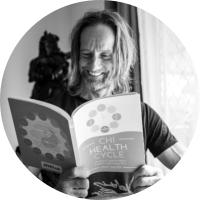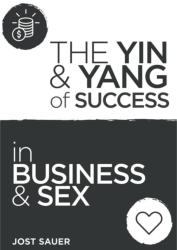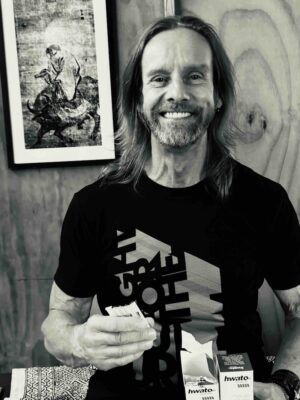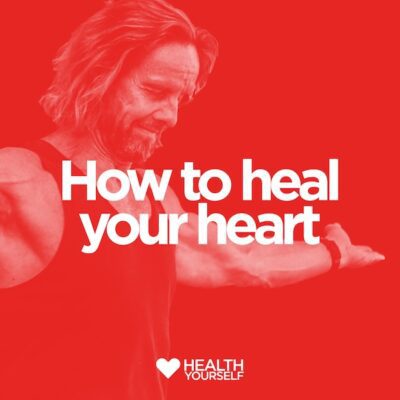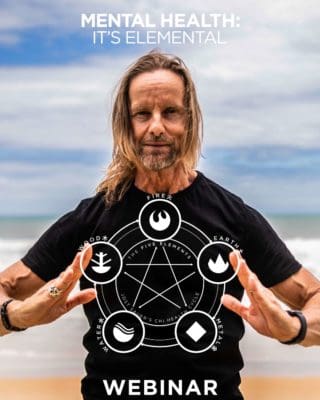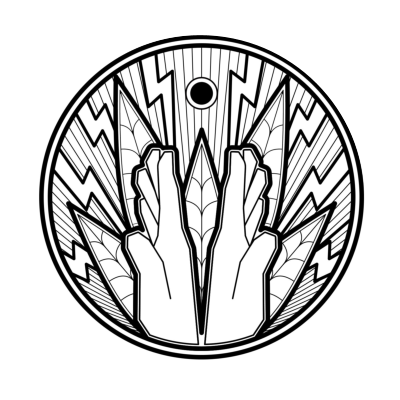Why weekly date nights and romance advice fail – and how to address the invisible patterns that actually determine relationship success or failure. The Surface Solution Trap “Can you reignite intimacy and passion with weekly dates?” This question came up in my clinic recently, and while scheduled romance…
Lifestyle Medicine Articles
Lifestyle Medicine / How To Be A Healthy Vegetarian
Posted November 15, 2018

How To Be A Healthy Vegetarian
by Jost Sauer
Like many people, I believed that being vegetarian automatically meant being more healthy. Numerous studies have identified weight-loss, lower cholesterol and blood pressure levels, and increased longevity as some of the benefits of being vegetarian. But as a lifestyle therapist, and as a meat-eater-turned-vegetarian who went back to eating meat and is now trying to give it up, I think that while theoretically it’s a good idea to be vegetarian, some people might simply function better and feel healthier with meat in their diet.
In fact a recent survey has found that vegetarians are 18 times more likely to be depressed than the rest of the population. I’ve treated plenty of vegetarians who have fluid retention, insomnia, emotional instability, anxiety and depression. This is often diet-related because when lifestyle and dietary changes are introduced, the symptoms disappear. The answer is not necessarily to eat meat, but to get into the power of ‘jing’, a secret ingredient that counters imbalances and depression and also makes the vegetarian diet really sustainable in the long term.
The link between vegetarianism and depression
Being German, I grew up in a meat-loving country and didn’t think much about food until I got into the hippie drugs and counter-culture ideas. This was reinforced in the early 1980s during my time in the famous Australian hippie commune in Nimbin. Nobody ate meat there. They were evangelical vegetarians who believed that a meat-free or vegan diet would make them better people and the world a better place. Meat, it was said, makes your energy ‘heavy’ and it has a ‘low vibration’. Eating it also meant harming other living beings, all of which interferes with the process of spiritual growth.
A vegetarian diet on the other hand was ‘light’, with a ‘higher vibration’ and it supported spiritual growth. But they also believed that vegetarians were more compassionate, more energetic and could be very strong as well. Examples from vegetarian animals such as gorillas, were used to back up the last claim. As an aside here, when David Attenborough finds gorillas in the wild, they are usually spending a lot of time sitting around chewing leaves. Gorillas are powerful, but in short bursts and only when necessary. The rest of the time they conserve their energy. We humans, on the other hand, have a lifestyle of constant physical and mental activity, we use (and waste) huge amounts of energy. But we also have the capacity to reverse this, and jing is part of this strategy.
Anyway, I embraced Nimbin and the vegetables with open arms. But instead of feeling strong and spiritual, I became increasingly scattered and lethargic. My post-drug depression increased and I took to alcohol (as in I drank all day until I passed out) to try and balance how bad I felt. The drinking exacerbated things and within a year I’d left the commune and ended up back on drugs convinced that I would never be ‘spiritual’.
At that time I made no connection between my diet and my symptoms. Even years later when I studied Chinese medicine, which sees diet as critical to physical, spiritual and emotional health, I was still trying to be vegetarian. It was the heyday of the new age by then, and nobody ate meat. So I got seriously into food combining, spending hours each day soaking beans and pulses, making my own nut butter, and so on but all the same symptoms came back.
This time, as I was in alternative health circles, the consensus was that I was experiencing a ‘toxin release’ and that I needed to fast to accelerate the process. When it got to the stage where I didn’t have the energy to treat anyone, I had a steak and my life changed. It seemed my choice was to either continue being vegetarian but unable to help others and thus unhappy, or to eat meat and fulfill my purpose in life. I said ‘yes’ to meat + purpose.
Being vegetarian wasn’t over for me though, researching the ultimate vegetarian diet, and the potential of food in general, became the focus of years of in-depth research. Food is treated as if it was just data in the west. Items are assigned a nutritional value and specific serves of foods groups are supposed to be consumed each day. But this is not a true reading of food. If it was, our hospital food wouldn’t be so appalling, and pretty much the worst thing you can eat if you are unwell.
In Chinese medicine food is medicinal, and cooking is all about nourishing your body, mind and spirit by building ‘jing’. This is a force which powers our physical, emotional and even spiritual life. Jing is considered to be a treasure in Chinese medicine, and the idea is to live in a way that enables you to store as much jing as possible to ensure an active and vibrant old age rather than a decline into weakness and illness.
Do some people need meat?
In Chinese medicine meat is included in the diet because it has jing. The more active or powerful the animal, the more jing its meat contains, so the more beneficial it is for you. We all have stores of iing in our body (in the kidneys and the uterus in women). These are the ‘lower’ chakras in ayurvedic traditions. As consuming meat activates and fuels these energy centres it is said to have a low vibration in new age thinking. But this is not necessarily a negative thing, as increasing jing increases your vitality and life force.
Vegetables also have jing but at much lower levels than meat. This is why, over time, vegetarians who do not get enough nutrients in their diet, unknowingly draw upon their own internal jing resources. Initially as jing levels start to decrease, it is common for women to develop menstrual disorders and men, sexual dysfunctions. The likelihood of anxiety, panic, fear and depression then escalate. If you want to be a strong, energetic and happy vegetarian for the rest of your life, factor in jing.
Sustainable vegetarian diets take effort. I’ve treated a lot of vegetarians over the years who have fruit or a green smoothie for breakfast, a salad or salad sandwich for lunch, and vegetables or a salad for evening meals. They add some nuts and the occasional egg. There is not enough jing in that to power a gnat. Even those vegetarians who are expert at food combining, and up on all the latest bean and grain combinations, or on mixing specific plant-based proteins to provide essential amino acids (the building blocks of protein), can end up slowly depleting their own internal power stores. My advice is to get on top of food combining, but also to add nutritional supplements and protein powder to the diet. In my opinion everyone, even meat eaters, need nutritional supplements, but for vegetarians it is critical.
A good vegetarian menu
Porridge, from oats or other grains, is the best breakfast. Add lots of seeds, like black sesame seeds or poppy seeds (I use 3 tablespoons of black sesame seeds and 4 tablespoons of poppy seeds in my own porridge). Many vegetarians are lacking in the essential fatty acids and minerals that are found in meat or fish, and seeds can provide these. Black sesame seeds are great for iron intake as well. I use almond milk or other nut milks in my porridge and always add protein powder. Some protein powders can be acidic which can impact on your kidneys and create irritation and edginess. I’ve found that pea protein works well because it’s alkaline, and it helps create the feeling of being grounded and calm.
I recommend a nice cooked lunch of foods such as nutmeat, tofu, and veggies, rice and lentils. Cook vegetables in lots of olive oil, as this can help replace the oil and fats found in meats. I like to use 2- 3 tablespoons of olive oil (it doesn’t make you fat as some people think, it actually enhances the metabolism). Nuts are a good addition (I snack on nuts in the afternoon) but check that they are not oxidized – snap a nut in half and if you can see a dark ring of oxidation they have lost some nutritional value.
Repeat a similar lunch menu for the evening meal. And have a glass of red wine. This strengthens what, in Chinese medicine, we call ‘fire’ in the kidneys. ‘Fire’ is a property of meat and it ‘evaporates’ liquids. If as a vegetarian you are lacking the element of ‘fire’ in your diet it leads to fluid retention and many other issues. Nutritional supplements and Chinese herbs, like kidney tonics, can help with this.
Raw food diets create imbalances
Raw food diets are becoming really popular but for the majority of the people I treat, while eating raw food may initially create a sense of ‘change’, it eventually generates physical and emotional imbalances. In Chinese medicine cooking (working with ‘fire’) puts jing into the body. This builds self-empowerment and prevents fear, anxiety and depression.
If you are already depressed, a condition that often inspires people to make lifestyle changes such as becoming vegetarian, doing juice fasts, or eating raw foods, it can increase your depression. Always go for warm, slow-cooked meals, like congees or stews and add super-powerful nutrients.
Vegetarians need more sleep than meat-eaters
Vegetarians need more sleep than meat-eaters. Sleep has a ‘nourishing’ quality and you need to tap into every possible source of nourishment. But if you are vegetarian getting that deep nourishing sleep is already going to be a bit harder. That ‘light’ feeling that the vegetarian diet creates, can also prevent you ‘sinking’ and it can make you a ‘light sleeper’, waking regularly during the night with a quickly active mind (having fruit and raw foods for dinner exacerbates this).
Quality sleep depends on being able to sink-in so, as a vegetarian, it is critical to stop work by 6pm at the latest and then do something like yoga or tai-chi to get you back into your body and to develop the skill of sinking. In Chinese medicine everything you do is connected. There is a 24 hour ‘chi-cycle’ in which your energy flows around your body and you can use this knowledge to your advantage. Between 5pm and 7pm chi hits your kidneys. Doing 20 minutes of yoga or chi-work during this time will help ground your energy and set some sequences in place which will help with getting a deeper sleep.
Constitutional types and diet
One more thing to factor in if you want to be a vegetarian is an understanding of your constitutional type, and also what kind of lifestyle you have and what work you do because this impacts on your energy output. I look at life as an energy game, with each action you take either adding to or depleting your jing. The idea of following the chi-cycle lifestyle, is to maximize jing levels.
But each player starts the game with different amounts of energy, marking them as either a yin type or a yang type. The yang types are high energy and like to go go go. They can get up and work until lunchtime or even all day without food (just because you can doesn’t mean you should). Yin types are more likely to have lower energy levels and need food to function. One is not better than the other as each type has advantages and disadvantages. Yang types can build huge amounts of toxic stress which bring on a health crisis and then suddenly turn vegetarian to try and be more healthy. Yin types may turn vegetarian to try and get more energy.
The issue in my own vegetarian journey was not understanding how being vegetarian fits into in the holistic or big picture perspective. I like to achieve and move and expand in my business, and as a therapist I invest huge amounts of energy in my work. This needs to be fuelled from somewhere, otherwise it depletes internal resources and generates unhappiness and depression. We are all individuals and if you consider diet choices in the context of your constitutional type, the amount of energy your lifestyle or profession requires, and what kind of old-age you want, you can make a better informed decision on what diet is healthy for you. For the chi-boosting, vegetarian supporting lifestyle check out my book Clock On to Health.
By Jost Sauer
Share this article:
About Jost Sauer
Jost Sauer is an expert in preventative health and Chinese medicine.
Jost pioneered lifestyle medicine for addiction, kickstarted a recovery revolution with his groundbreaking rehab program, and then adapted the program for everyone as the Chi Cycle lifestyle; a health-boosting, fat-burning feel-good day plan.
Jost has treated thousands of people including celebrities, CEOs and athletes, using his unique combination of Chinese medicine, acupuncture, chi-activation, motivational coaching and lifestyle. He offers individual sessions, training programs and retreats. Jost’s passion is to show everyone how to optimise their organ function, synch back in and reconnect to natural rhythms, and make every day medicinal and magical…
Related Articles
Forget everything you’ve been told about healing from relationship breakups. This groundbreaking method transforms heartbreak into an opportunity for authentic self-discovery and spiritual awakening. Why Traditional Heartbreak Advice Fails Most relationship recovery advice follows the same tired formula: take time to grieve, don’t rebound too quickly, work on yourself,…
Feeling overwhelmed by anger everywhere you look? You’re not alone. Here’s how to use anger as fuel for positive change instead of letting it destroy your health and relationships. The Anger Epidemic: What’s Happening to Us? There’s no denying it – anger is everywhere right now. I see it…

